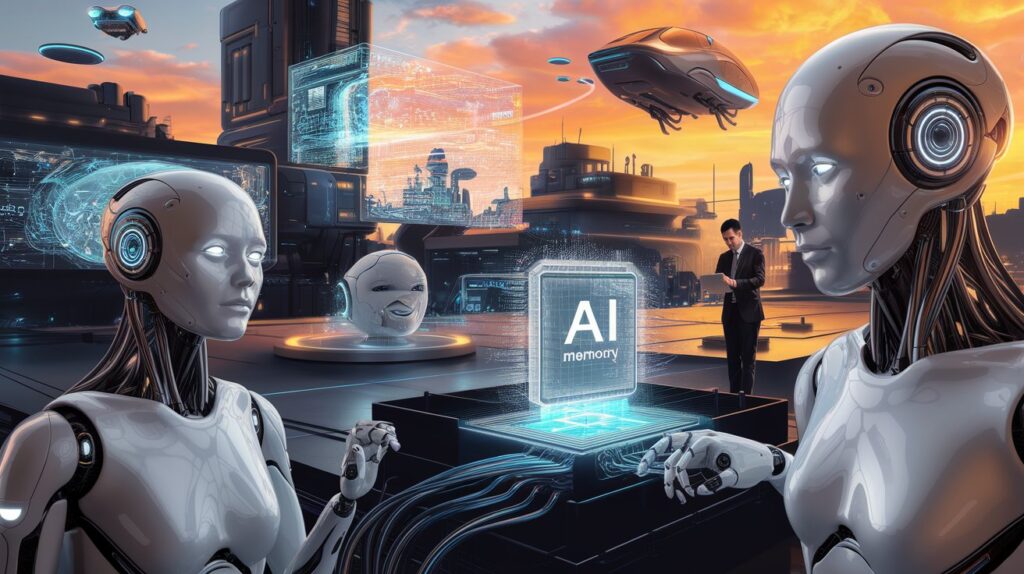AI Trends for 2025: What’s Coming Next?

As we move into 2025, Artificial Intelligence (AI) is set to revolutionize our world even further. But what exactly does the future hold? Let’s explore eight key trends in AI that will shape how we live and work.
1. Agentic AI: Think “Mission Impossible” Bots
Imagine an AI assistant who doesn’t just answer questions but plans and executes tasks for you. That’s what Agentic AI aims to do. These smart systems can break down complex problems, make multi-step plans, and use tools to achieve goals.
For example, picture an AI agent organizing a large event. It could book venues, send invites, and even coordinate catering. However, today’s AI struggles with more complex reasoning like juggling multiple variables. In 2025, we can expect significant improvements, making these “mission-ready” bots even more capable.
2. Inference Time Compute: AI That Thinks Before It Speaks
Many AI systems now provide instant responses, but what if they took a moment to “think” for better answers? That’s the idea behind Inference Time Compute. AI can spend more or less time reasoning, depending on the complexity of the task.
For instance, a quick question like “What’s 2+2?” might take a split second, but diagnosing a complex medical issue could take several minutes. This flexibility will make AI smarter and more reliable in tackling tough problems.
3. Scaling Up: Massive Models on the Horizon
AI models are growing at an incredible rate. Current large language models have up to 2 trillion parameters (think of these as the “settings” that make AI smart). By 2025, models with 50 trillion parameters could emerge, unlocking mind-blowing capabilities.
For example, these giant models might understand nuances in every human language, revolutionizing global communication. However, building and running such models will demand a lot of computing power and raise questions about their environmental impact.
4. Tiny but Mighty: Small AI Models
On the flip side, small models are stepping into the spotlight. These AI systems need only a few billion parameters yet can perform specific tasks extremely well. The best part? They don’t need huge data centres and can run on devices like your phone or laptop.
Imagine a lightweight AI model that helps you edit videos on your phone, with no lag, and no fuss. These compact systems make AI accessible for everyone without requiring fancy hardware.
5. Smarter AI for Businesses
AI in businesses isn’t new, but it’s becoming much more advanced. For example, customer service bots in 2024 mostly routed tickets to human agents. In 2025, they’ll likely solve complex problems themselves—like helping you troubleshoot your internet connection or fix software issues.
Similarly, cybersecurity tools could identify and adapt to new threats in real-time, making businesses safer and more efficient.
6. Near-Infinite Memory: AI That Never Forgets
Today’s AI can remember a lot but only briefly. In 2025, we’re moving closer to near-infinite memory, meaning AI systems could retain all your interactions forever.
Imagine a customer service chatbot that knows your preferences, past issues, and even conversations from years ago. This could mean quicker, more personalized support, but it also raises questions about privacy.
7. Human + AI: Better Together
When humans and AI work together, the results can be amazing or frustrating. For example, a recent study showed doctors using AI performed worse than AI alone when diagnosing medical cases. Why? Because current systems aren’t designed for seamless collaboration.
In 2025, expect better integration tools that let professionals use AI without needing to be tech experts. Think of an architect using AI to design buildings faster, without learning coding.
From smarter assistants to AI that runs on your phone, the trends for 2025 promise exciting possibilities. These advancements will make AI more powerful, accessible, and collaborative than ever. However, as we embrace these innovations, it’s important to consider their ethical and environmental impact.





